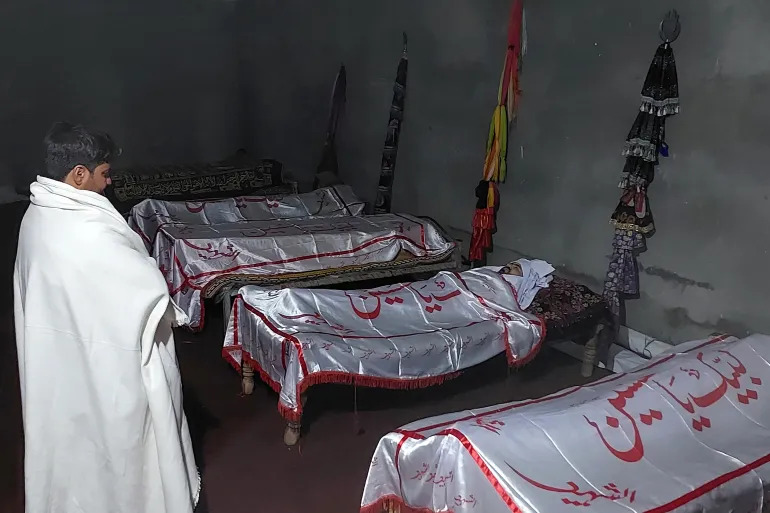Clashing tribes in the restive Kurram district of Pakistan’s Khyber-Pakhtunkhwa province finally signed a peace agreement on Wednesday to end over two months of deadly violence in the area, but a former parliamentarian from Parachinar has little hope that the deal will succeed.
Sajid Turi, an erstwhile member of the National Assembly from Parachinar, told Dissent Today that many individuals involved in the violence did not sign the agreement. “I have no confidence in this agreement,” he said, adding that the provincial government showed little interest in developing a durable solution to the conflict.
Violent clashes between tribes stemming from longstanding land disputes have claimed at least 130 lives since November. According to sources, the actual death toll may be higher than reported, as several targeted attacks have claimed lives since the start of the conflict.
The area has also witnessed a humanitarian crisis, with more than 100 children dying due to a shortage of food and medical supplies amid a blockade of the road that connects Parachinar to the rest of the country.
Following the agreement, the highway is expected to open soon, and the first convoy of food and medical supplies since the peace deal would be sent to the area by the Parachinar Trade Union. The provincial governments of Sindh and Balochistan, along with the Red Crescent Society of Pakistan, also contributed humanitarian aid for the first convoy.
Turi, who is the Vice President of the Pakistan People’s Party (PPP) Khyber-Pakhtunkhwa, states that similar agreements between tribes have been made in the past, but they only provided temporary respite from clashes and failed to ensure lasting peace.
‘Taliban involved in Parachinar violence’
While the crisis in Parachinar was largely perceived as a sectarian issue between the Shia and Sunni communities in the area, Turi argues that there is more than meets the eye. “The Taliban and the Islamic State-Khorasan (IS-KP) are active in the area,” he said, adding that militants from these groups have been exploiting sectarian differences by pressuring Sunni community leaders to side with them.
“Taliban militants have prevented Sunni representatives from signing peace agreements on numerous occasions because they want the clashes to continue,” Turi says. He further claimed that militants from the Islamic State and Tehreek-e-Taliban Pakistan (TTP) have an active presence in Lower Kurram, extending up to the Alizai town.
According to a recent report by an Islamabad-based think tank, Khyber-Pakhtunkhwa recorded the highest number of terrorist attacks in the country in 2024, with 295 attacks. Attacks carried out by the TTP killed about 300 people during the year.
Attacks by ISIS-K that employ roadside bomb tactics have also increased in the province in recent months. In August, the group claimed responsibility for at least two attacks on Pakistan military personnel in the Khyber and Bajaur districts.
Turi says the authorities are trying to cover up the involvement of the Taliban and Islamic State in the violence in Kurram by presenting it solely as a sectarian issue. “Because Parachinar is a Shia-majority area, it is easy for them to portray the issue as a sectarian one and conceal the involvement of the Taliban,” he says.
On Tuesday, a Christian man who was mistaken for a Shia was beheaded by anti-Shia extremists in Kurram, with graphic images of his severed head circulating on social media. Turi says that the manner in which he was killed makes it clear that either the Taliban or the Islamic State was behind the incident.
In response to a question, Turi said that Parachinar and Kurram need a permanent solution to the issue, which requires the state to establish its authority in the region. “We urge the Pakistan Army to take action against the militants who have taken over our area,” he said.
A spokesperson for the Khyber-Pakhtunkhwa government did not immediately respond to a request for comment.


